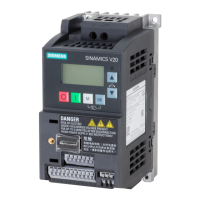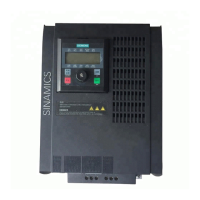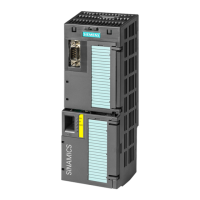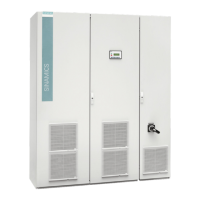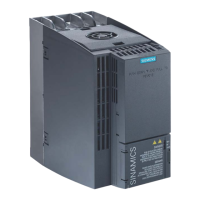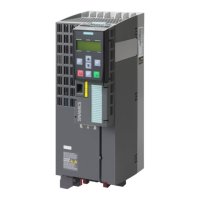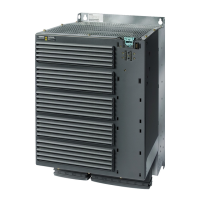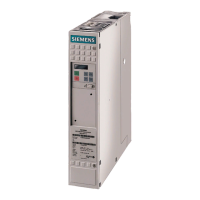For configurations in conformance with UL/cUL, use the UL/cUL approved fuses, circuit breakers and Type E combination
motor controllers (CMC) which are specified in this manual. Refer to the following tables for specific types of branch circuit
protection for each inverter and corresponding Short-Circuit Current Rating (SCCR). For each frame size, use 75 °C
copper wire only.
This equipment is capable of providing internal motor overload protection according to UL508C/UL61800-5-1. In order to
comply with UL508C/UL61800-5-1, parameter P0610 must not be changed from its factory setting of 6.
For Canadian (cUL) installations the inverter mains supply must be fitted with any external recommended suppressor with
the following features:
• Surge-protective devices; device shall be a Listed Surge-protective device (Category code VZCA and VZCA7)
• Rated nominal voltage 480/277 VAC (for 400 V variants) or 240 VAC (for 230 V variants), 50/60 Hz, three phase (for
400 V variants) or single phase (for 230V variants)
• Clamping voltage VPR = 2000 V (for 400 V variants) / 1000 V (for 230 V variants), IN = 3 kA min, MCOV = 508 VAC
(for 400 V variants) / 264 VAC (for 230V variants), SCCR = 40 kA
• Suitable for Type 1 or Type 2 SPD application
• Clamping shall be provided between phases and also between phase and ground
Improper mains disconnection can cause inverter damage.
Do not perform mains diconnection on the motor-side of the system if the inverter is in operation and the output current is
not zero.
The opening of the branch-circuit protective device may be an indication that a fault current has been
interrupted. In this case, fire or electric shock can result.
To reduce the risk of fire or electric shock, current-carrying parts and other components of the controller should
be examined and the controller should be replaced if damaged. If burnout of the current element of an overload
relay occurs, the complete overload relay must be replaced.
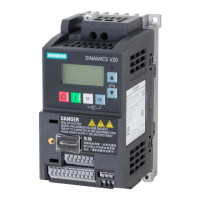
